Table of Contents (click to expand)
Animals have evolved to survive on their specific diets by consuming the organs of their prey which contain vital nutrients. Humans have evolved to survive on a limited diet by consuming a variety of foods which provide a balance of nutrients. However, humans have a longer lifespan than animals and want to lead an active, happy life, so consuming a balanced diet is necessary.
We’ve all been taught to consume a healthy diet, ever since we were kids. I vividly remember a ‘balanced diet’ chart pinned on the display board in my classroom in Grade 5. It listed the essential foods that one should regularly consume as part of their balanced diet in order to stay healthy.
Animals, on the other hand, especially those that live in the wild, live on very narrow diets. In other words, their diet consists of very specific foods; as such, they don’t get to eat varied foods (like we do), which could potentially provide them vital nutrients and minerals. Still, they seem to be in good shape, at least for as long as they are alive. How does that work?
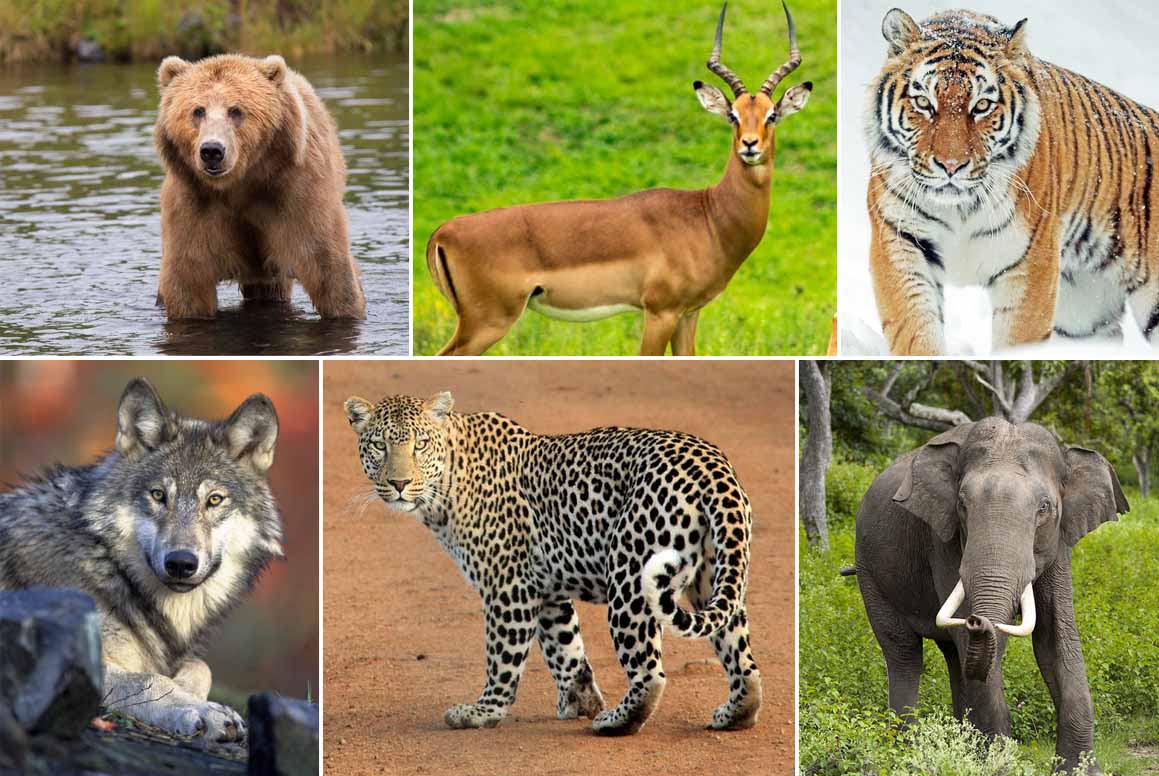
Have you ever thought about why humans need such a varied diet with so many different foods, whereas animals can get by with such narrow diets?
Before we get to that answer, let’s start by understanding what a balanced diet really is.
What Is A Balanced Diet?
A balanced diet, as the name clearly signifies, is one that provides a proper balance of nutrients and minerals that the human body needs to function at its best. Having said that, a balanced diet therefore contains six vital nutrient groups, namely carbohydrates, proteins, lipids or fats, vitamins, minerals and water, all of which are required in appropriate quantities to maintain good health.
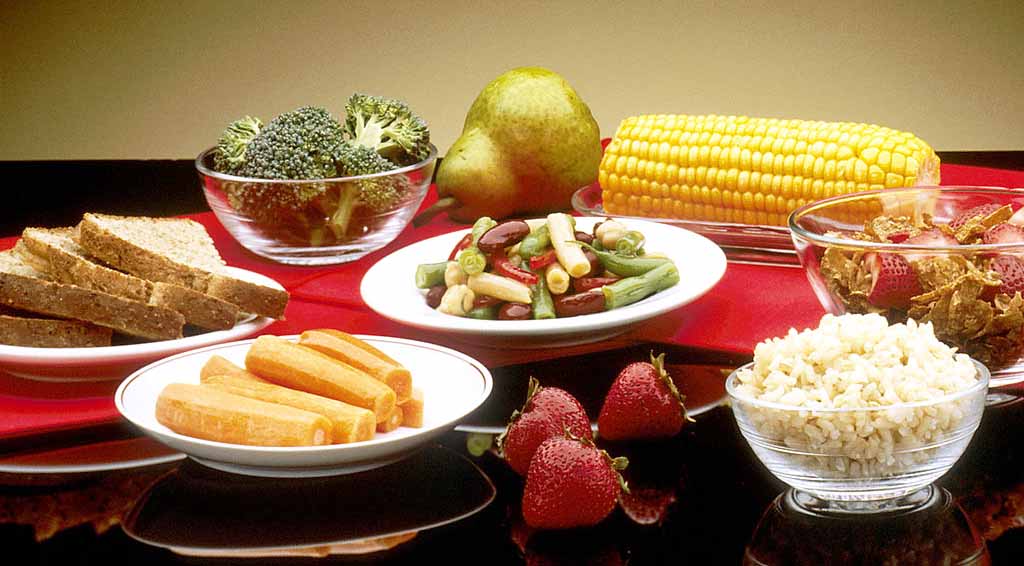
A deficiency in any of the aforementioned nutrients can lead to various ailments, dehydration, starvation and subsequent death. There is also an absolute requirement of certain molecules, known as the essential nutrients, because the body cannot manufacture these nutrients on its own and therefore depends on external sources for their supply.
If you don’t consume a balanced diet, you risk the lack of an adequate supply of any of these nutrients, which could potentially lead to diseases and other problems.
Also Read: Know Your Vitamins: What Do Water-Soluble Vitamins Do In The Body?
Do Animals Eat A Balanced Diet?
You might think that wild animals consume very ‘narrow’ diets, i.e., they don’t get to consume as nutritionally-rich foods as we humans have ready access to. If you believe that, you should know that you’re not correct… at least not entirely.
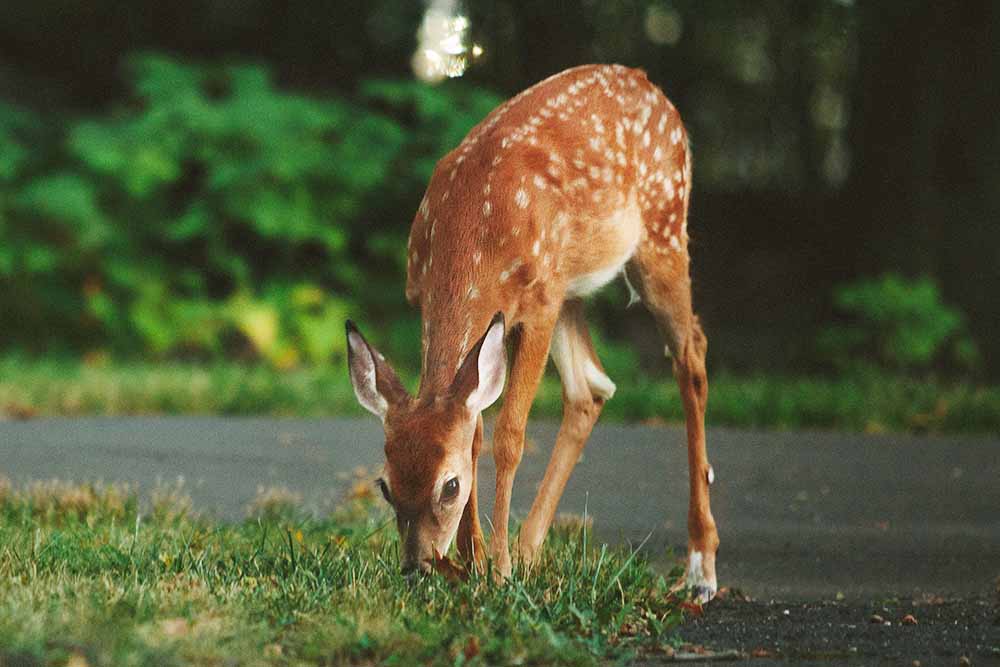
First, very few animals have extremely narrow diets. So, you might think that a deer, for instance, being an herbivore, only eats grass and plants, but you may be surprised to note that it can (and does) eat small birds and the organs of certain other animals (including their fellow deer) when they’re really famished.
Second, carnivorous animals do eat the internal organs of their prey, which are often rich in certain nutrients that are impossible to find in their muscle tissue (or ‘meat’, as we call it). Thus, these animals manage to get a decent intake of key nutrients by way of eating the innards of their prey.
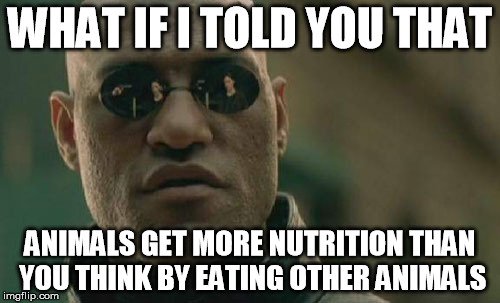
Humans, on other hand, generally prefer eating only the meat (i.e., the muscle tissue) of animals, which is not nearly as rich in nutrients as their inner organs. As a result, humans lose out on a sufficient amount of nutrients by restricting themselves to just eating meat.
Note: ‘eating just the meat’ is a fairly recent trend in Western cultures; there are many nations where people still eat the internal organs of animals.
Humans Can Also Survive On A Limited Diet
Yes, it’s true! It’s not just animals, but humans as well, that can survive on eating very simple, specific diets for the entirety of their lives! Believe it or not, if you eat nothing but potatoes every day, you won’t just drop dead the next day, the next week, the next month, or even in the next couple of years.
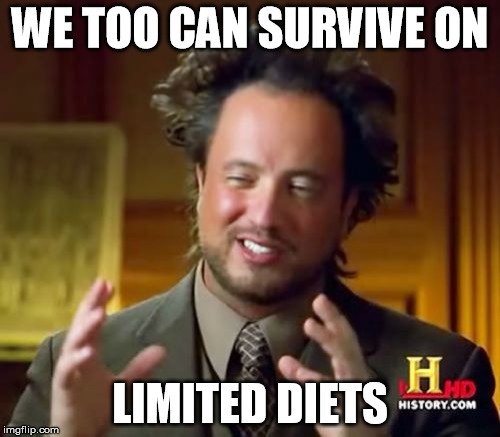
It’s interesting to note that we humans need an astonishingly small variety in our diet to survive. An individual can survive for many years by following a very narrow, specific diet. As a species, humans can do just fine if they eat a very unhealthy diet; consuming a balanced diet is hardly a requirement to survive.
However, before you go around cutting out the healthy stuff (e.g., veggies, fruits etc.), remember that I am using the word ‘survive’ here.
Yes, you can survive for years by just eating french fries, but if you really do that, you will accumulate a bunch of deficiencies in your body. And with all those deficiencies, you obviously won’t feel that good. You will undoubtedly debilitate your immune system and will therefore be more likely to contract diseases. In other words, the quality of your life won’t be that great if you insist on surviving exclusively on burgers and pizzas.

It’s true that wild animals don’t eat as balanced a diet as we humans do, but do they live for as long as we do? The average lifespan of a wild beast is nowhere near the average lifespan of humans. Most animals survive on eating whatever they get their ‘hands’ on, reproduce a few times, and then drop dead; all of this happens within a time frame of 10-15 years, in most cases. That is a reasonable survival strategy for beasts of the wild.
However, (most) humans want to live for much longer than that and lead an active, happy life until they’re old and ‘ready to depart’. Because of that, consuming a balanced diet becomes a necessity for humans.
Also Read: If You Are Very Hungry, Should You Eat A Lot To Compensate?
How well do you understand the article above!

References (click to expand)
- Skerrett, P. J., & Willett, W. C. (2010, November 12). Essentials of Healthy Eating: A Guide. Journal of Midwifery & Women's Health. Wiley.
- HE Plate. Healthy Eating Plate | The Nutrition Source. The Harvard T.H. Chan School of Public Health
- 1 The components of a balanced diet - The Open University. The Open University
- UT University Health Services - healthyhorns.utexas.edu
- Managing your weight with healthy eating - MedlinePlus. MedlinePlus
